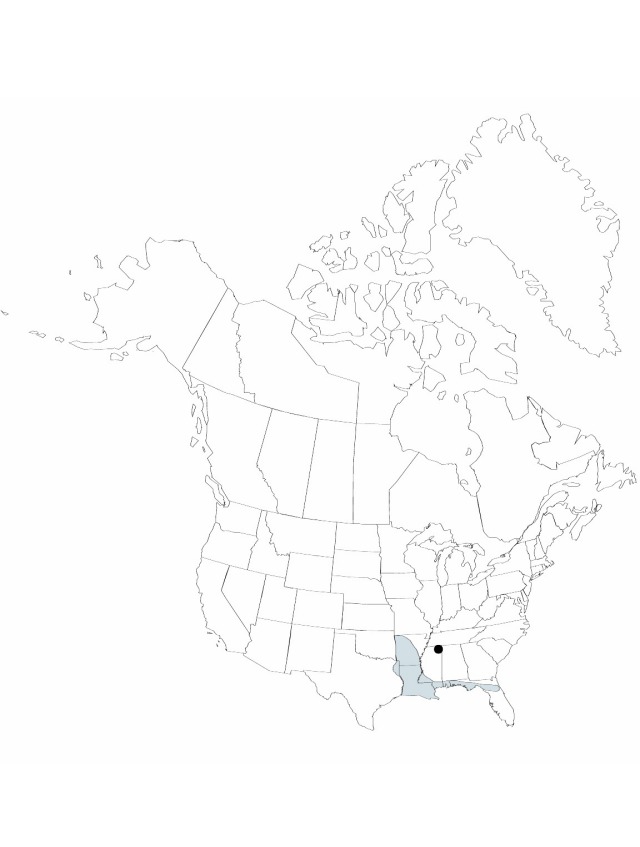Tradescantia paludosa
Contr. Arnold Arbor. 9: 83; plate 2, fig. 4; plate 4, fig. 6; plate 11;. 1935.
Herbs, erect, ascending, or occasionally decumbent, rarely rooting at nodes. Stems often much branched distally, 15–60 cm; internodes not at all to slightly glaucous, glabrous. Leaves spirally arranged, sessile, forming nearly right angle with stem, straight; blade narrowly oblongelliptic to linear-lanceolate, 4–11 (–20) × 0.4–1.2 cm (distal leaf-blades equal to or narrower than sheaths when sheaths opened, flattened), base often constricted, apex acuminate, not at all to slightly glaucous, glabrous. Inflorescences terminal, often axillary; bracts foliaceous. Flowers distinctly pedicillate; pedicels 0.8–1.5 cm, glabrous; sepals 0.6–0.8 mm, glabrous or with apical tuft of eglandular hairs; petals distinct, pale blue, ovate, not clawed, 1.3–1.5 cm; stamens free; filaments bearded. Capsules 2–5 mm. Seeds 2–3 mm. 2n = 12.
Phenology: Flowering spring (Mar–May), sporadically to early fall.
Habitat: Alluvial bottoms and swamps, forests, roadsides, railroad rights-of-way, fields, ditches, and lawns
Distribution

Ala., Ark., Fla., La., Miss., Tex.
Discussion
Tradescantia paludosa is clearly Anderson and Woodson's weakest species, and D. T. MacRoberts (1979) may be correct in treating it as a variety of Trandescantia ohiensis. In view of its importance as a research tool, however, I prefer to maintain T. paludosa as a species until a more rigorous analysis of its variation is published. Plants of this species do not seem to require a winter dormancy, hence they can be cultivated in greenhouses year-round.
Selected References
None.